“My problem… and I’ll speak as a writer now… with writing a black character in either the Marvel or DC universe is that he is not a man. He is a symbol.”
Dwayne McDuffie was black, but certainly had no problems writing a character like Reed Richards. Reed Richards represents nothing more than Reed Richards, and if you don’t like the cut of his jib, you have plenty of alternatives in superheroic fiction to choose from. But if Reed Richards was black, or gay, or anything else considered a deviation from the norm, you suddenly have the challenge of presenting that as well as simply presenting a character (and by the by, I’m only using “deviation from the norm” in the sense that the great majority of mainstream superheroes are shown as straight white guys). You have the challenge of whether or not to present it at all. That’s a lot of baggage to deal with in addition to story itself, and especially so if the roles happen to be reversed and you’re a white guy who grew up in the suburbs who wants to have non-white people in his story. Now for my part, I created characters like Oscar and Rosa not because I’m expecting young children to look up to them, but because even the Old West was a lot less whitewashed than people might believe, and so I didn’t want my Weird New West to be devoid of skin tones darker than “beige”. I also thought it might make for interesting fodder down the road on the idea of race relations in a world where people of all races ended up dead and green. But I’ll admit, from a race standpoint the story stands at one example of a black man, one example of a Latina, and several examples of white folks. Does that matter? Maybe yes, maybe no. When a cast has a bunch of white folks to play around with, there’s the opportunity to show how some are smart and some are dumb, some are courageous and some cowardly, and that’s the point that sticks. When you have one or two characters whose appearance stands apart from that, suddenly the instinct is to revert to the surface. Suddenly that’s in grave danger of defining who they are, and it’s got a lot more baggage to it than even referring to one of the people as “The Fat Guy”. You can make a safe, if cynical bet that if there’s a white guy who’s fat, he’ll be identified as “The Fat Guy”, whereas if there’s a black guy who’s fat, he’ll be “The Black Guy”. A symbol, not a character. However, there’s no question I would bet the other way if it were an all black cast with a token white guy. There’s that horrible word: token. Looking up tokenism makes my skin crawl because I don’t want to be guilty of it, but by taking the risk of including non-white characters in a predominately white cast, I’ve opened myself up to the possibility. The only absolute defense against the specter of tokenism is plurality, i.e. having many and varied examples for your audience to have to dig deeper on, rather than wrapping all their expectations and projections onto a character based on their surface characteristics. But that makes for a pretty cumbersome cast list. I will admit, presenting Suzie as a competent young lady has certainly helped me feel more free to portray Lacey as being not quite so together. Then I can also contrast them against Rosa, Muriel, etc., and none of them can really be classified as “The Girl” anymore, which is a status some solo female members of other webcomic casts have been labeled with. On the other hand, Oscar and Rosa could still very well be in peoples’ heads as “The Black Guy” or “The Mexican Chick”. It’s something I do think about, particularly when this comic does have a pace where characters might disappear into the background for weeks or even months at time and space for character development is at a premium between an ensemble cast and a need to keep the story progressing. In absence of plurality the next best thing would be to invest them with enough life as individuals that people move past appearances and look into character, although this is again where the issue of symbolism rears its head. Rosa is sneaky, so am I saying all Mexicans are sneaky? Is showing Oscar preaching scripture and dispensing advice to Frank relegating him to that groan-worthy trope of the Magical Negro? I doubt it, considering Oscar misremembered the scripture and tried to dispense cigarettes along with advice; but because I did that, would someone be offended I was portraying my only black cast member as a flawed person? In the end, it’s entirely possible this is just me overthinking my writing in a way far beyond anything you folks have bothered to conceive… nor should you have to, seeing as you’re here first and foremost to be entertained. But although McDuffie’s quote might specifically refer to black characters, he speaks as a writer, and speaks to that fundamental challenge of getting your characters through to your audience as living, breathing people.
Latest Comics
-

#507. 487 – Got Beef?
54 Dec 15, 2021
-
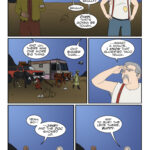
#506. 486 – Get The Lede Out
53 Nov 24, 2021
-
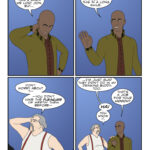
#505. 485 – Proof Of Life
51 May 12, 2021
-
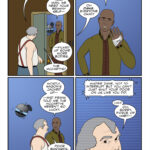
#504. 484 – Words Of Wisdom
46 Apr 28, 2021
-
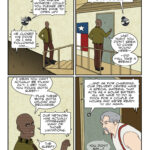
#503. 483 – Solar Systems
51 Apr 21, 2021
-
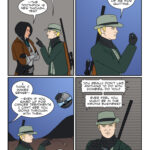
#502. 482 – His Body His Business
45 Apr 14, 2021
-

#501. 481 – Re-capitulation
45 Apr 07, 2021
-
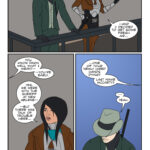
#499. 479 – Guilty Measure
45 Mar 17, 2021
-
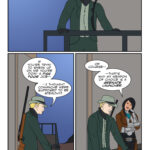
#498. 478 – Mirthful Stereotype
43 Mar 10, 2021
-
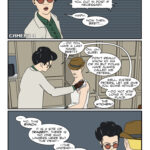
#497. 477 – Dead Inside
47 Mar 03, 2021
-
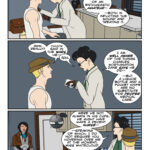
#496. 476 – Sneer Review
45 Feb 24, 2021
-
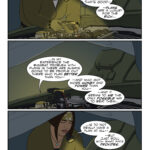
#495. 475 – Not Quite Sun Tzu
45 Feb 17, 2021
-

#494. 474 – Tales From The Hood
53 Feb 10, 2021
-
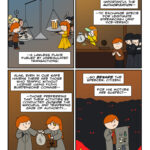
#493. 473 – Beware The Speecer!
48 Feb 03, 2021
-
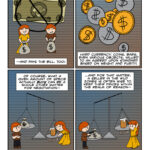
#492. 472 – The Origins Of Specie
48 Jan 27, 2021
-
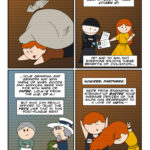
#491. 471 – Old School Metal
48 Jan 13, 2021
-
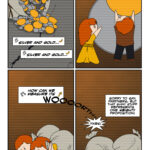
#490. 470 – Weighty Matters
50 Jan 06, 2021
-
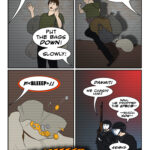
#489. 469 – The Specie Must Flow
48 Dec 16, 2020
-
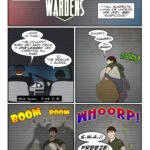
#488. 468 – Whatcha Gonna Do?
48 Dec 09, 2020
-

#487. EPISODE TWENTY
72 Dec 07, 2020









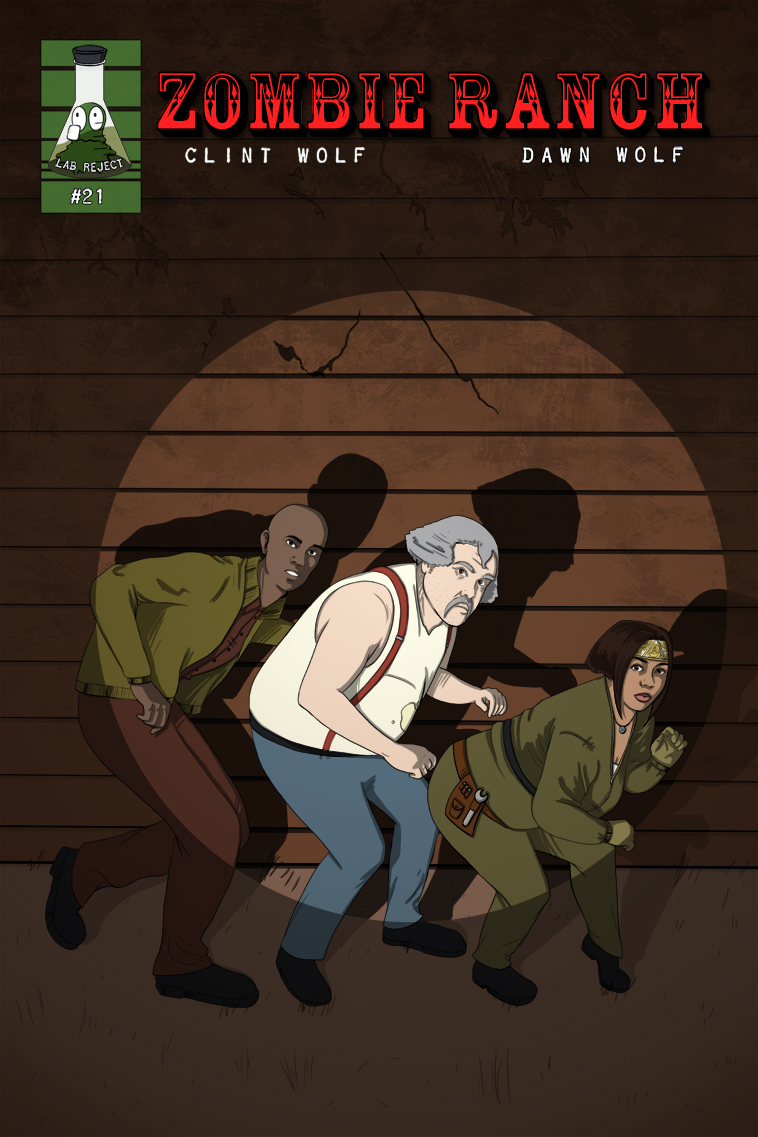
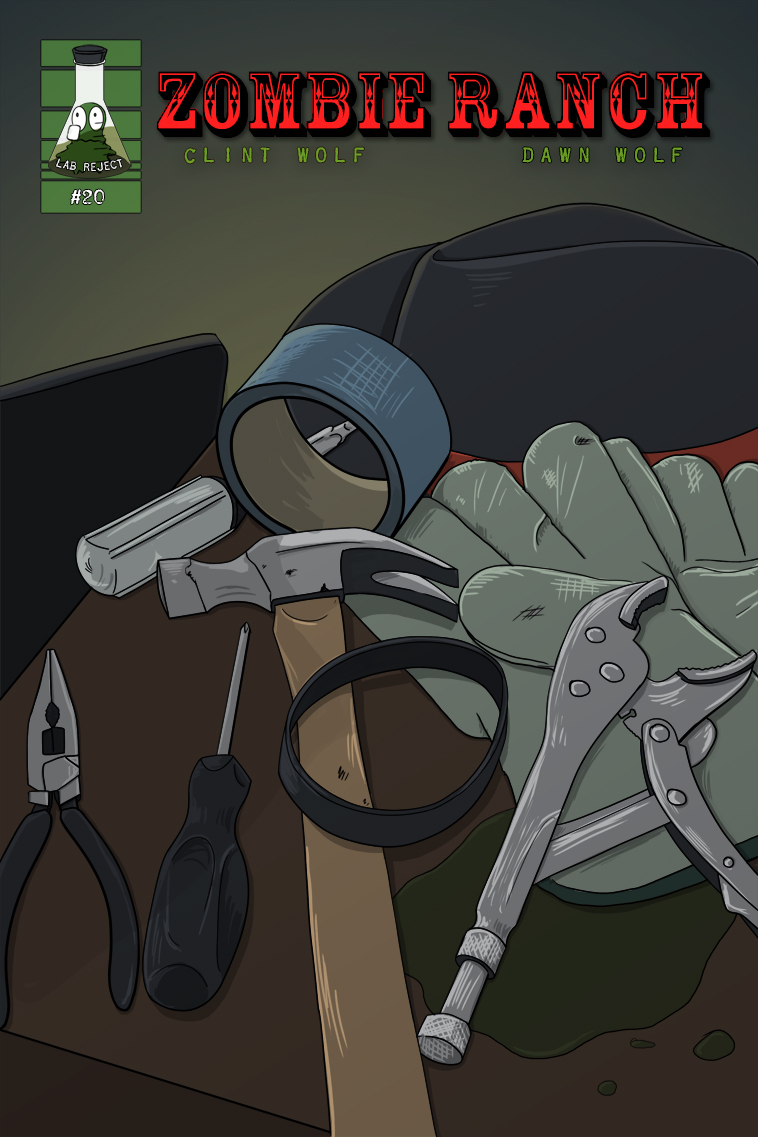
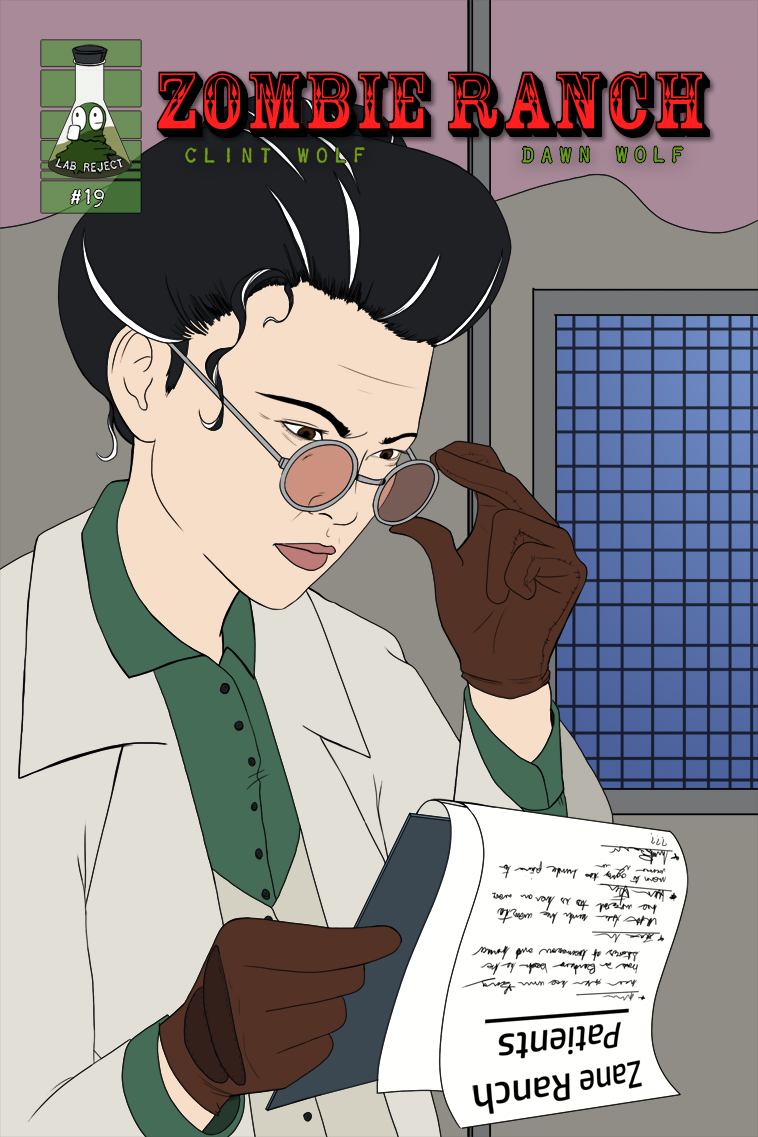

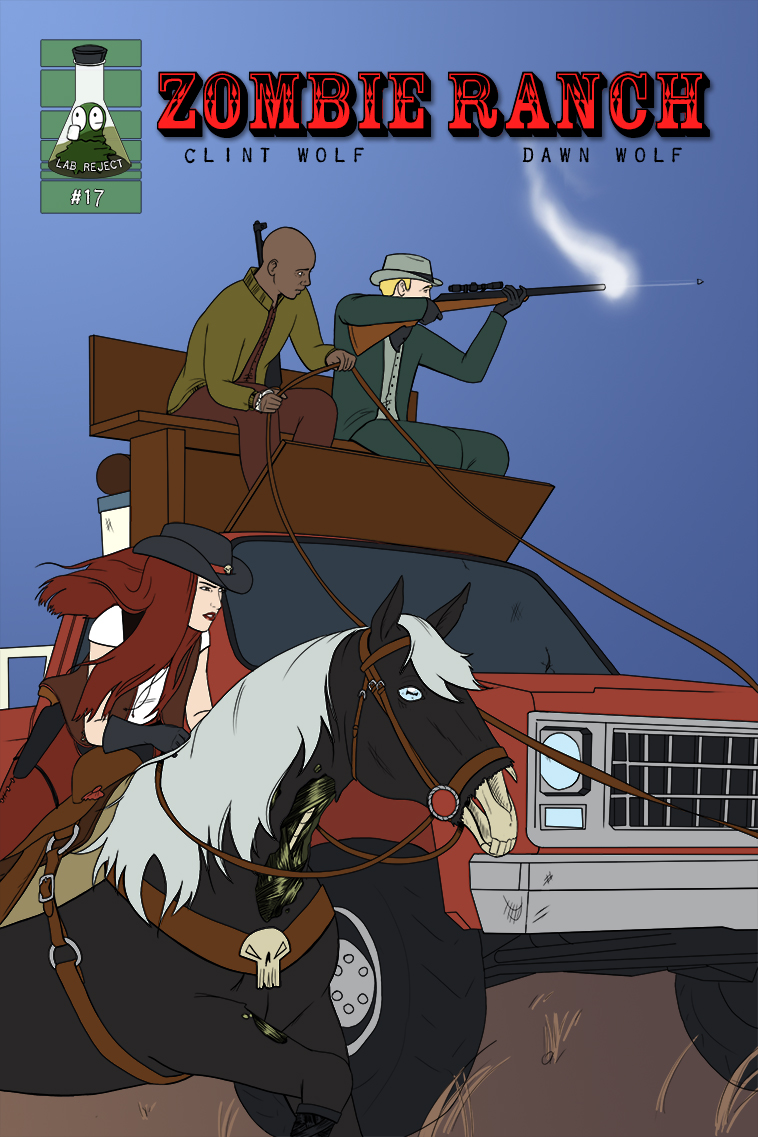
2 thoughts on “544 – Hanker For A Hunker”
Dr. Norman (not a real doctor)
That feels like my life with my eyes these days …
“These goggles don’t got no magnification on ’em”
Crazyman
“The bad news is, there’s a lot of them.” 👿